#Kay Zimmer
Explore tagged Tumblr posts
Link
#schuhplus#Vereine#Vereinsförderung#Vereine fördern#geld für vereine#vereinsgeld#kay zimmer#große schuhe
0 notes
Text








coloured icons from aot: before the fall, feel free to use if you want.
I put the lesbian flag for Rosa cuz she really gave off those vibes when she spoke to sharle but then I remembered that I ship her with Felix and gave her the bi flag instead lmao
#attack on titan#snk#aot#attack on titan before the fall#rosa carlstead#kai zimmer#kuklo#sharle inocencio#icons#attack on titan icons
12 notes
·
View notes
Text
#nowplaying#2017#The Sound of my 2017#The Sound of my youtube#The Sound of my#Prag#Rhonda#Kai & Funky#Calogero#MUCC#Mark Forster#Imagine Dragons#Hans Zimmer#kettcar#Matthias Brodowy#Ensemble Resonanz#Johann Sebastian Bach
0 notes
Text
'“A few people laughed, a few people cried, most people were silent.” — J. Robert Oppenheimer in 1965, on the reactions from the people of the Manhattan Project after the world’s first nuclear detonation in 1945, the Trinity test.
1: DESTRUCTION
FLAMES WILL FLOOD THE FRAME. LIGHT TRAVELS FASTER THAN SOUND. THE SCIENTISTS WILL SEE THE BOMB THEY HATH WROUGHT. THEY WILL SEE THE LIGHT BEFORE THEY FEEL THE EFFECTS. THE SILENCE WILL HOLD AS FIRE SHOOTS TOWARD THE SKY AND OUT OVER THE DESERT. THEN THE THUNDER OF THEIR STOLEN LIGHTNING WILL RING OUT. ONCE IT HAS PAVED THROUGH PROJECT MANHATTAN, THERE WILL BE SILENCE FOR A MOMENT. THEN THE SCIENTISTS WILL CHEER, AND I WILL ONCE AGAIN FEEL TEARS FLOOD MY EYES.
2: creation
christopher nolan (“Inception”) begins “Oppenheimer” with an allusion to the ancient greek Titan Prometheus. this comes from the biography on which nolan bases the film: “American Prometheus: The Triumph and Tragedy of J. Robert Oppenheimer” by kai bird and martin j. sherwin. the Titanic title is reminiscent of mary shelley’s “Frankenstein,” alternately titled “The Modern Prometheus” — but while the latter likens its haunted scientist to Prometheus for the Titan’s creation of humanity, bird and sherwin compare the birth of the atomic bomb to when, as quoted in the film’s opening shot, “Prometheus stole fire from the gods and gave it to man. for this, he was chained to a rock and tortured for eternity.” they chose the wrong Titan.
3: Preservation
When William Faulkner won the 1949 Nobel Prize in Literature, he gave a speech chiefly concerned with the state of art and internal conflict in the Cold War era of nuclear proliferation: “Our tragedy today is a general and universal physical fear so long sustained by now that we can even bear it. There are no longer problems of the spirit. There is only the question: When will I be blown up?” The end of everything — whether by war, climate or some other disaster too monstrous for comprehension — is too enormous to examine. I have tried, in a way — but the only way to contain eternal apocalypse is to view it through the eyes of a mortal. Could I start with the end of everything that I knew?
WE EXPECT THE CAMERA TO STAY FOCUSED, PULLING OUT TO SENSE THE SCALE OF THE EXPLOSION. IT WILL NOT HOLD TO JUST ONE APPROACH. IT WILL CUT AROUND EVERY WHICH WAY, EVERY ANGLE OF THE EXPLOSION IT CAN. THIS IS A SCALE THAT COULD NOT BE SENSED. NEUTRONS BOMBARD UNSTABLE HEAVY METAL ISOTOPES UNTIL IT DESTROYS ITSELF INTO LIGHTER ELEMENTS. THE DIFFERENCE IN MASS RELEASES AS ENERGY. THAT IS FISSION: A SMALL AMOUNT RELEASES, BUT IT WILL LINK AND MULTIPLY INTO ENERGY INCOMPREHENSIBLE — INCOMPREHENSIBLE UNTIL IT WILL BE UTTERLY ECLIPSED BY FUSION.
no, there’s this look in the university-era oppenheimer’s (cillian murphy, “The Dark Knight”) eyes before he is ever burdened by the bomb, constantly straining with all the stars in the sky and the quantum dances of the atoms they contain — it reminds me of Atlas, who was punished by the gods for his loyalty to the old order and tasked to shoulder the skies and the stars and everything else we claim to know anything about. later on, oppenheimer takes on the weight of his lover (florence pugh, “A Good Person”) in addition to the sky as he reads out another title from the Bhagavad Gita: “i am become Death.” that translation isn’t the most accurate, though. that passage refers to Time, less a destroyer than a decayer. in Titanic terms, the Lord of Time is Kronos, the father of the gods, who, after eating his children for fear of being replaced, was cut down to nothing by those very children. then there’s the Trinity test — named for a poem about the Christian Trinity favored by both oppenheimer and his paramour — and it is darkest just before the dawn. the bomb blots out the stars and summons the sun before their time and oppenheimer becomes Helios, the Titan of the sun, who was condemned to watch his lover die by being buried alive, even after he unearthed her and bathed her in life-giving sunlight, all as punishment for his infidelity. after the test, oppenheimer calls his wife (emily blunt, “Edge of Tomorrow”) of nearly five years. he can no longer call his lost lover, their final meeting two years ago, and her suicide a year after that. to become a Titan is to become a cautionary tale. this is where nolan fails.
Before I knew the true shape of the universe, my infantile brain read in some Hindu story that the world was supported by four elephants who in turn stood atop a turtle. Shivaji, Brahmaji, Vishnuji and all the other gods I read in the scriptural retellings and Amar Chitra Katha comic books were the ones who drove this universe forward, the ones who my parents once told me — to keep alive some of my childhood magic, reinforce my religious faith or maybe just to mess with me — was not mythology, but history. It was my father who put on the first NOVA documentary I saw as a primary school child, which detailed the incomprehensible size of the universe and how all of that could end. I couldn’t rip my eyes away. It worked on comparative scale; the subdivision that felt giant to my child body was multiplied into the suburbs, the suburbs into the city, the city into a state, the state into the country, the country into the continent, the continents into the planet, the planets into the solar system, the solar systems into galaxies, the galaxies into superclusters and all of that contained with a universe — a universe that could die from its own expansion, weight, entropy. That revelation dragged my head beyond the clouds, into the stars, and I have never left. There was a never-ending question I had to cope with: How could I live in a universe that I could not comprehend?
FUSION CREATES HEAVIER ELEMENTS FROM ITS LIGHTER COMPONENTS. THE DIFFERENCE IN MASS IS RELEASED AS ENERGY. THE ENERGY RELEASED IS GREATER, AND THIS PROCESS IS ACCOMPLISHED WITH THE LIGHTEST AND MOST ABUNDANT ELEMENTS IN THE UNIVERSE. THIS IS HOW THE SUN SURVIVES. THIS IS HOW THE SCIENTISTS WILL ADVANCE THE ATOMIC BOMB INTO A WEAPON WORTHY OF THE STARS — ALL TO TURN IT UPON THE EARTH. THE WEIGHT UPON THE TITAN’S SHOULDERS IS SO GREAT IT WILL WARP TIME UNTIL IT BREAKS, SO THE DIRECTOR WILL SPLIT AND CUT HIS FILM BETWEEN FISSION AND FUSION, BETWEEN MULTI-COLORED SUBJECTIVITY AND GRAYSCALE OBJECTIVITY, BETWEEN THE IMPLOSION OF PLUTONIUM AND THE HELLFIRE OF HYDROGEN — BUT HE WILL OMIT THE THIRD NUCLEAR FATE.
i don’t think nolan cares about j. robert oppenheimer. he can claim that he regards the scientist as “the most important person who ever lived,” but nolan’s film does not focus on the man, only the tragedy of Titanhood he becomes. in nolan’s continuous prioritizing of concept over character, there are very few singular people who matter. even if the actors behind them are exceptional, the scientists are stage props for the next atomic advancement; the politicians are mouthpieces to spout famous historical soliloquies; the women — the brilliant botanist-biologist katherine “kitty” oppenheimer and the sophic psychiatrist dr. jean tatlock — aren’t safe from the fate of nolan’s women, to be punished and put in the ground for the sins of his protagonists. but in “Oppenheimer,” nolan doesn’t need to care about individuals, about titles, about nations — because what’s at stake is the entirety of humanity and the world itself. the story is centered around not oppenheimer the Father, but his Son, the bomb and the Holy Spirts that haunt him. nolan cares only about the Trinities, about art, about where he sees himself in the scientist by what the director’s art has unleashed. “Oppenheimer” is a Trinity of Hollywood staples: the boundless business of biopics, the star-studded and cameo-crowded blockbusters, the hans zimmer- / david julyan- / ludwig görranson-orchestrated (“Interstellar,” “Memento,” “Tenet”) nolanic ballads. it collects contradictions in its factual fabrications, its negligible name drops, its auteurist inanities — but contradiction is how “Oppenheimer” achieves its most exquisite ends.
Come primary school, I was obsessed with books on black holes, relativity and quantum mechanics — at least the ones that my pre-teen brain could process, the ones that turned sci-fi into fact. I had wanted to be some scientist for as long as I knew: The dream was Peter Parker first, then a paleontologist and now a professor of physics. Come middle school, I prided myself on my obsession with the atom and my declaration to earn a doctorate in my chosen field — staring at the glowing, ionized helium trails of cathode ray electrons and the condensed cacophony of cloud chamber alpha particles for science fair projects. I learned about Occam’s razor that year — the idea that the simplest model for a phenomenon is usually the best one — and used it to cut my gods out of the universe, believing science was supreme to my sensibilities, that faith was belief without evidence contradictory to a rational world. Come high school, my goals were set on Harvard — ranked the top in the US for both physics and education — and so I returned to my elementary, atomic experiments: refining my research on cathode rays, solidifying my studies on semiconductor band gaps and enriching my understanding of electromagnetic administration over plasma. I wanted to do much more, but I was limited to high school science and told I could do more elsewhere to get where I was aiming. I put in the work: well-rounded extracurriculars, sports, APs. I sacrificed night after night of sleep to study until sophomore year. Then in the spring of my sophomore year, I was hospitalized. Among other things, I found out my body had succumbed to the stress of my science-centered schedule. It ulcerated my intestines. It bled me from the inside for months. I finished that year with my GPA and goals crushed, but beyond that, I had a new question to cope with: What do you do when the thing that made you feel alive — that solidified your soul among the stars — is part of what tried to kill you?
DECAY IS WHAT WILL FOLLOW THE EXPLOSION. DECAY CREATES AND DESTROYS THE SUBATOMIC TO ACHIEVE ITS STABILITY. DECAY ELIMINATES INSTABILITY FROM ELEMENTS BY EMITTING IT INTO THE UNIVERSE. DECAY IS WHAT WILL HAUNT THE ISLANDS, THE PEOPLE AND THE WORLD LONG AFTER THE LAST BOMB HAS BEEN DROPPED. DECAY WILL SEE THE TITAN CUT OFF FROM THE FILM TO SPEND THE REST OF HIS LIFE CRUMBLING UNDER HIS SIN, TO DIE FROM THE BODY PART WITH WHICH HE TALKED SO MANY INTO DESTROYING THE WORLD, THE VERY SAME PART THAT DEIGNED TO DECLARE HIM LIKE “VISHNU … HIS MULTI-ARMED FORM … THE DESTROYER OF WORLDS.” BUT EVEN AS HINDU DEITIES ARE OFTEN ASSIMILATED, SHIVAJI IS THE TITLE MOST ACCURATE TO THAT CLAIM. THE HINDU TRINITY AND BALANCE WILL BE BROUGHT AS THUS: SHIVAJI / THE DESTROYER / ATOM SPLITTER, BRAHMAJI / THE CREATOR / ELEMENT FUSER, VISHNUJI / THE PRESERVER / STABILITY SEEKER.
what came before humans or gods or Titans was Chaos. Chaos is what sinks the skies, smashes seconds and swallows the sun. Chaos is neutrons bombarding every which way to ravage a desert and an island nation of people. Chaos is what happens when cells stack their functions in such a way that the organism they create now seeks to fulfill its function in countless contradictory ways. Chaos is that contradiction, a physicist-politician-philosopher attempting to end war by igniting the atmosphere. Chaos is the contradiction of grayed-out, grueling objectivity and vibrant, senseless subjectivity. but within Chaos lies its master — the invitation to control it.
Come college, come my senior year, come mere months away from graduating with my first degree in physics. I have gone through the virtual hell of Zoom honors courses, been Stockholm syndromed into liking Python and overcome the intimidation of participating in research projects that now feel far more advanced than I could have once imagined. I had to quit the latter position last summer. There were schedule conflicts, but there was something else. Especially after the discovery of my disability, how the world changed and reality was exposed while I went from secondary school to college, my attempts at activism have implanted themselves in my identity. I found myself embracing faith more when I realized the world was never rational; I have since needed some semblance of it to keep going. I eventually found a path to my goals that didn’t gut me, but I remained conflicted in this new life. Beyond the existentialism, beyond that science-induced stress, I now cope with one more question, one for our burning world: If the Earth is ablaze, how is any action of mine that doesn’t fight the flames of any use?
THIS WORLD WILL NOT BE ONE OF DUALITY. THIS WORLD WILL NOT BE DIVIDED THROUGH BLACK AND WHITE, THROUGH THE COLORLESS AND COLORFUL. THIS WORLD WILL NOT EITHER LIE ON YOUR SHOULDERS OR COLLAPSE ENTIRELY. THIS WORLD WILL NOT ONLY BELONG TO EITHER MICE OR MEN, TO MORTALS OR TITANS, TO SCIENCES OR GODS. THIS WORLD WILL NOT GIVE AN ANSWER TO EVERY QUESTION, ONLY EXPERIENCE. THIS WORLD EXISTS IN TRINITY: IT IS WHAT ISN’T,
of what opposes by what IS
and the absurd arose from that contradiction.
THE FUTURE WILL BE DESTROYED
if we only create the present
because we wanted the past to be pointlessly preserved.
WE WILL SAVE OUR DAYS
when it takes all of time to justify for itself
for what had actually ever mattered.
WE WILL SHOUT AS LOUD AS EVERY BOMB DROPPED TO TOPPLE THOSE AGED, OPPRESSIVE EDIFICES.
we whisper those new quiet Constitutions into existence to better what we replace.
We have found our balance to advance the upheavals.
PROMETHEUS WILL NOT BE TO BLAME FOR BRINGING FIRE BECAUSE WE WILL BE DESTINED TO DESTROY OURSELVES AND WE WILL BE DESTINED TO NEVER LEAVE OUR CAVES
and we are destined for the flames and we are destined to burn beyond ourselves
and light was wave and photon and we could never know both the location and momentum of a quantum particle and everything was matter and everything was energy. I have beseeched thee, Prometheus.
I WILL HAVE MY FIRE BACK. I WILL HAVE THIS WORLD CRUSH ME FLAT, EVISCERATE ME WHOLE, BURY MY HEART
so i can learn to lift the sky myself, raise myself and restore my love because
maybe the term “mad scientist” was always redundant. The existential melancholy at the heart of “Oppenheimer” wasn’t just that we created the weapon to end the world, but that we peered into infinity at one of the most fundamental levels of our existence — the boundless energy of our most basic atomic constituents — and harnessed its power for destruction. But harness it we did. I wanted that bit of divinity that is my birthright by Brahmanji. In all of this chaos, I have only ever sought a self-centered semblance of control in the hopes that one day it could save people in some way, including myself. Scientists have a good idea how to save the world, but the selfish won’t listen. The scientists of the Manhattan Project thought they were able to save the world through their science, but maybe they didn’t listen.
SCIENCE, ART, SPIRITUALITY — THEY WILL DESTROY THE WORLD IF WE FORCE THEM
and they are saving it when we allow them.
My melancholy has served its purpose; there are only so many tears you can shed until you flood the world before the oceans. But I still weep at Trinity — whether that is the Trinity of Titans, mine or Oppenheimer’s — and I know I always will. I mourn what the gods, what science and what humanity has wrought upon the world, yours and mine.
THE ACTORS WILL LAUGH,
the audience remains silent,
someone had to cry.'
#Oppenheimer#Christopher Nolan#Inception#American Prometheus: The Triumph and Tragedy of J. Robert Oppenheimer#Kai Bird#Martin J. Sherwin#The Dark Knight#Florence Pugh#A Good Person#Bhagavad Gita#Trinity test#Emily Blunt#Edge of Tomorrow#Kitty#Jean Tatlock#Interstellar#Memento#Tenet#Hans Zimmer#Ludwig Goransson
1 note
·
View note
Text
Sapphic Books Coming Out July 2024
Contemporary 💖 Loser of the Year by Carrie Byrd 💖 The Loves of Her Life by Haley Donnell 💖 The Coin by Yasmin Zaher 💖 Making It by Laura Kay 💖 The Black Bird of Chernobyl by Ann McMan 💖 About Last Night by Laura Henry 💖 Together We Fall Apart by Sophie Matthiesson 💖 Lover Birds by Leanne Egan 💖 Forbidden Girl by Kristen Zimmer 💖 Cash Delgado is Living the Dream by Tehlor Kay Mejia 💖 One Last Summer by Kristin Keppler 💖 Rainbow Allies by Nancy Churnin 💖 Unbecoming by Seema Yasmin 💖 The Loudest Silence by Sydney Langford 💖 StreamLine by Lauren Melissa Ellzey
Paranormal/Horror 💖 Carmilla, Vol. 2: The Last Vampire Hunter by Amy Chu & Soo Lee 💖 The Blonde Dies First by Joelle Wellington 💖 I Will Never Leave You by Kara A. Kennedy 💖 So Witches We Became by Jill Baguchinsky
Fantasy 💖 The Princess and the Thief by Mary Lynne Gibbs 💖 A Wolf in Stone by Jane Fletcher 💖 The Second Son by Adrienne Tooley 💖 Daughters of Chaos by Jen Fawkes 💖 Queen B by Juno Dawson
Historical 💖 A Thousand Times Before by Asha Thanki 💖 A Lethal Lady by Nekesa Afia
Mystery/Thriller 💖 The Night of Baba Yaga by Akira Otani 💖 Charlotte Illes Is Not a Teacher by Katie Siegel 💖 The Devil You Know by Ali Vali 💖 Girl Falling by Hayley Scrivenor 💖 The Meaning of Liberty by Sage Donnell 💖 Undercurrent by Patricia Evans
Sci-Fi 💖 Navigational Entanglements by Aliette de Bodard
#books#sapphic books#sapphic romance#queer books#queer fiction#queer romance#book releases#book release#new book#new books#batty about books#battyaboutbooks
74 notes
·
View notes
Note
So, there's a lot of books that you complain about being awful (most of which I haven't read), usually because of the interpretation of some character (or many characters).
Is the problem with most of these books:
1. That the character on question has been written as a bad person,
2. That the interpretation differs from the Vulgate Cycle,
3. or the specific combination of those two things?
Or have I completely misread this situation?
See the thing is, yes it has to do with interpretation of characters, but perhaps not as superficial as it sounds! While I do love the Vulgate and prefer a more nuanced Mordred, that’s not really the root of the issue. I want Mordred to topple Camelot. I don’t expect or want authors to follow the Vulgate exclusively, there’s plenty from Chrétien or SGATGK or Parzival or the Mabinogion I’d love to see incorporated and they often are! Yay!
The real answer is a complicated thing that can only be expressed through examples because citing “misogyny” or “racism” doesn’t convey the magnitude or severity of the problem. Medieval society was misogynistic and racist at times, I don’t think those things should go ignored in a retelling. It would cheapen the narrative to pretend Guinevere’s or Morgause’s situations weren’t brought about largely due to the patriarchal systems at play nor do I want to pretend everyone who met Palomides was race blind.
Here’s an exhaustive list of sourced examples to indicate what I’ve encountered that really turned my stomach in retellings…content warning for everything from animal abuse to rape to genocide. This is gonna be long….
Adding more/intentional incest.
Agravaine sexually attracted to his mother Morgause (The Once and Future King by T. H. White) or to his aunt Guinevere (Arthur Rex by Thomas Berger, The Road to Avalon by Joan Wolf)
Gaheris sexually attracted to his mother Morgause (The Wicked Day by Mary Stewart)
Mordred sexually attracted to and raping his mother Morgause (Morgawse by Lavinia Collins)
Uther sexually attracted to his step-daughter Morgause (Igraine by Lavinia Collins)
Kay sexually involved with his uncle Lancelot (Guinevere and Morgan by Lavinia Collins)
Mordred sexually involved with his aunt Morgause (Guinevere Evermore by Sharan Newman)
Morgause attempting to seduce her teenage son Mordred (The Wicked Day by Mary Stewart)
Arthur marrying his sister Morgan (Bedivere by Wayne Wise)
A life-long sexual relationship between Arthur and his aunt Morgan (The Road to Avalon by Joan Wolf)
Mordred and “auntie” Morgan having sex (Merlin and the Sword (1985))
Exceedingly graphic first-person rape of Guinevere by her cousin Maelgwn (Queen of the Summer Stars by Persia Woolley)
Mordred kidnaps and tries to rape his sister Avlynn (Merlin and the Book of the Beasts (2009))
Increased racism.
Using modern slurs like the N word against Palomides (The Once and Future King by T. H. White)
Aggressive and confrontational Safir “restrained” by white characters and called “homicidal Moor” by Kay (The Book of Gaheris by Kari Sperring)
Palomides speaking in broken English mentioned as a “turn-off” for Morgause (Morgawse by Lavinia Collins)
Palomides a former slave orphaned and raised culturally British instead of immigrating to Britain and constantly othered as “the Arab companion” when the others don’t have modifiers like that (Queen of the Summer Stars and Legend in Autumn by Persia Woolley)
Depicting Arab Bertilak as perpetrator of pederasty, random anti-black or anti-Asian allusions, random antisemitism, etc. (Arthur Rex by Thomas Berger)
Tristan wanting to put down “barbarian” Palomides and drives him to madness (The Enchanted Cup by Dorothy James Roberts)
Black face Palomides (The Black Knight (1954))
Adding pedophilia/child brides.
Girls including Morgaine forced into ritualistic sexual situations for “ceremonial” reasons (Mists of Avalon by Marion Zimmer Bradley)
Eleven year old Morgause given to Lot in marriage by her mother Igraine who lied about her age (Morgawse by Lavinia Collins)
Child bride Isolde (Legend in Autumn by Lavinia Collins, Enemy of God by Bernard Cornwell)
Merlin sexually involved with fosterling Nimuë and later attracted to young Olwen (The Winter King and Excalibur by Bernard Cornwell)
Morgause preying on minors (The Wicked Day by Mary Stewart, The Book of Gaheris by Kari Sperring)
Pedophile/serial killers Kay and Mordred (Dragon’s Child and The Bloody Cup by M. K. Hume, The Queen’s Knight by Marvin Borowsky)
Morgause sexually abusing Agravaine (Queen of the Summer Stars by Lavinia Collins)
Pederast Arthur sleeping with young Peredur and Geraint (Arthur the King by Allan Massie)
Lancelot grooms young Mordred to be his lover (Mordred, Bastard Son by Douglas Clegg)
Bademagus raping 13yo Lynette (The King’s Damosel by Vera Chapman)
Warp a character into a rapist.
Morgause/Morgan tricking Arthur to sire Mordred (The Once and Future King by T. H White, Excalibur (1981), The Hollow Hills by Mary Stewart, Bedivere by Wayne Wise, Morgan by Lavinia Collins, Guinevere by Sharan Newman, Camelot (2011))
Gawain threatening Guinevere with rape then eventually banished from court for raping someone else (Guinevere and Morgawse by Lavinia Collins)
Exceedingly graphic first-person rapes of Morgause by Lot and Mordred, Morgan by Urien (Morgawse and Morgan by Lavinia Collins)
Morgause laughing when she learns how traumatized Arthur is after her seduction of him (Queen of Summer Stars by Persia Woolley)
Agravaine threatening to rape Guinevere (The Road to Avalon by Joan Wolf)
Perceval raping Layla and getting turned on watching the rape of someone else (A Knight’s Tale by Richard Monaco)
Lancelot forcing himself onto Guinevere (First Knight (1995))
Lancelot raping Galahad’s gf (The Winter King by Bernard Cornwell)
Bors tries to rig a dice game in which the prize is sex with Nimuë (Cursed (2020))
“He would not fucking say/do that.”
Arthur, Lot, Geraint, Urien, and Lancelot are wife beaters with minimal to no consequences (Warrior of the West by M. K. Hume, I Am Mordred by Nancy Springer, Igraine and Morgan by Lavinia Collins, Knight Life by Peter David)
Lancelot doesn’t rescue Guinevere leaving her to burn at the stake by Arthur (Fall of Knight by Peter David)
Lancelot used Guinevere for political gain (Excalibur by Bernard Cornwell, The Bright Sword by Lev Grossman)
Lancelot married to Elaine then cheats on her with Guinevere and causes his wife’s death leaving Galahad an orphan (Merlin (1998))
Agravaine skins Elaine’s cat and wears it (Queen of Summer Stars by Persia Woolley)
Gareth helps Gawain torture Pellinore to death (I Am Mordred by Nancy Springer)
Genocide.
Arthur picks up where Uther left off and continues to commit genocide against magic-users, Merlin helps (BBC Merlin (2008-2012)
The red paladins commit genocide against the fay, Lancelot helps (Cursed (2020))
Gawain uses sun powers to commit genocide in the holy land, other knights like Tristan, Mordred, and Agravaine help (F/GO Camelot Wandering (2020) and F/GO Camelot Paladin Agateram (2021))
Lancelot as high king of Britain commits genocide against allies of Arthur to stay in power, other knights like Dagonet, Lot, and Calogrenant help (Kaamelott: First Installment (2021))
So yeah. It isn’t ideal that Lamorak is old in Sword of Lancelot (1963) or Dagonet is stoic and boring in King Arthur (2004). But like, whatever! I like those films! Same goes for replacing Gaheris with Geraint in Sarah Zettel’s series or cutting Gareth out of Gillian Bradshaw’s trilogy. Kind of a bummer, lame even, but not a deal breaker. The things about these bad retellings that drive me mad are much more sinister than that, rooted in really detestable opinions about women and children and people of color.
Can’t Mordred, Agravaine, and Morgan be normal scheming/evil/power hungry like they were in BBC The Legend of King Arthur (1979) or Howard Pyle’s books or Knights of the Round Table (1953) instead of whatever the above are doing? Not to mention the complete violation of Guinevere, Morgause, Lancelot, and Gawain as characters. I’m so tired, man.
Hope this clears things up. Sorry if you made it through that list. I’m sure you hated reading it as much as I hated writing it. But I think it makes it clear the problem here and that I’m not just being picky. The psychic damage is taking its toll.
35 notes
·
View notes
Text

#art#movies#kfp#kung fu panda#kung fu panda 2#kfp 2#kfp tigress#kung fu panda tigress#kfp fanart#kung fu panda fanart#Spotify#bugdoodlesmanysillies#deadbeatdraws
32 notes
·
View notes
Note
Hi! Wondering if you know any friends to lovers angsty books? Sorta like her name in the sky and sunburn
Hmm I know what you mean and it’s not exactly like those but I must guide you toward The Last True Poets of the Sea by Julia Drake and How to Make a Wish by Ashley Herring Blake. (The friendships are newer, but the angst lines up just right IMO.) For a little lighter on angst but heavier on starting with friendship, try The Gravity Between Us by Kristen Zimmer and Wild Things by Laura Kay, and for even lighter on angst, the adorable Dating Sarah Cooper by Siera Maley. But my top pick for this overall is Body Grammar by Jules Ohman, which I think is so underrated and I hope you love it as much as I did!
12 notes
·
View notes
Text
The fantasy in modern Arthuriana (2)
This is a loose translation of Claire Jardillier’s article “Les enfants de Merlin: le merveilleux médiéval revisité” (The children of Merlin: Medieval magic revisited), for Anne Besson’s study-compilation.
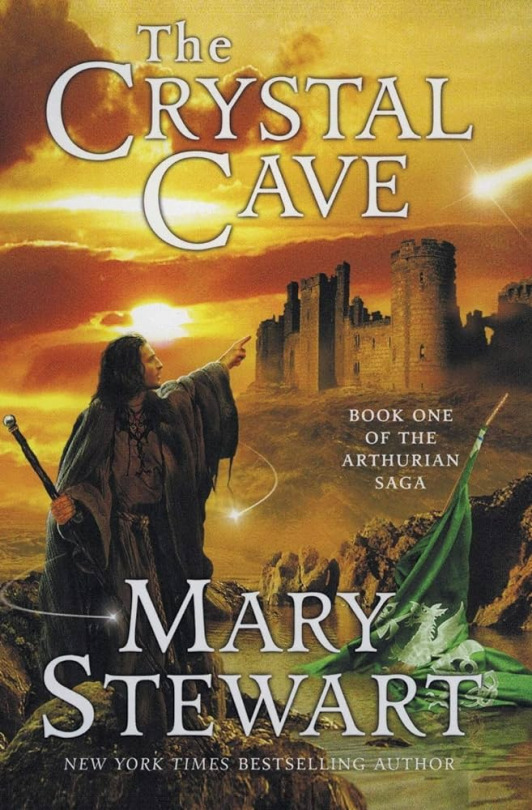
II/ Wizards and witches
The fantastical elements within modern rewrites are often embodied in the most visible way by a few key characters. First and foremost among this magical cast is, of course, Merlin the enchanter, but also regularly the bard Taliesin, despite his lesser presence within the Matter of Britain. Taliesin indeed only appears obviously tied to Arthur within the Welsh sources, especially “Preiddu Annwn”, where he is part of the expedition led by Arthur to steal away the cauldron of resurrection from the Otherworld. We can make the hypothesis that is it because of the historical rewrites of the Arthurian legends that the character of Taliesin gained such an importance, since it is in the Welsh sources that he is most frequently seen, sources that modern rewriters especially love due to judging them more ancient and thus more “authentic” and more Celtic than the chivalry romances and knighthood romans of France and England. Since Wales resisted more strongly to the Saxon invader, then to the Normand influence, modern novelists like to use the “Mabinogion” and the Welsh poems to historicize their Arthur. Taliesin usually stays within his traditional role of bard, in accord to the historical and bibliographical information we have about him. While quite brief, these information naturally designate him as the symbol of the Arthurian legend within a “realistic” rewriting, as a character between the history and the myth.
[In the “Hanes Taliesin” mainly, translated by Lady Charlotte Guest and which follows her “Mabinogion” translations, we discover the two births of Gwyon Bach/Taliesin, is exploits as a bard within the court of prince Elphin, and some of his poems. The historical Taliesin seems to have been a bard at the court of Urien Rheged during the 6th century, and the poems attributed to him were preserved within the “Llyfr Taliesin” (The Book of Taliesin). It notably contains the famous “Cat Godeu” (Battle of the Trees) and the previously mentioned “Preiddu Annwn”. These Welsh poems, like many others, were translated and published by William F. Skene within his “Four Ancient Books of Wales”]
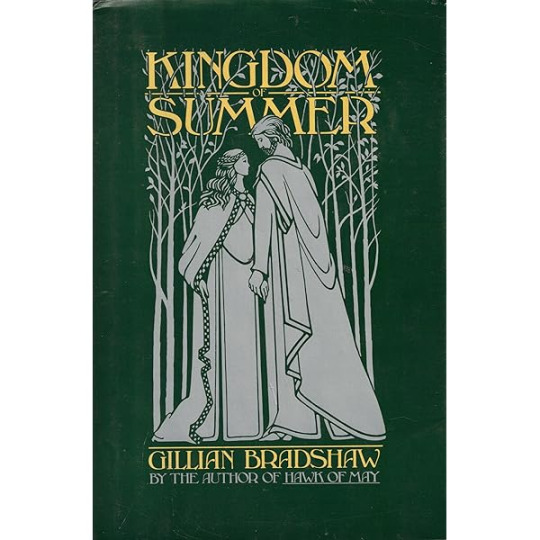
As such, within Fay Sampson’s “Daughter of Tintagel” cycle he becomes one of the five narrators that relate the life of Morgan. A first-person narration that give a voice to a secondary character of the medieval corpus is a fundamental trait of modern Arthurian literature : as such, we can hear Kai, Pelleas, Bohort, Rhys or Bedwyr, characters whose point of view is rarely given in legends, alongside the manifestation of more novel characters, such as Derfel, a shadowy warrior turned saint in the 6th century who narrates Bernard Cornwell’s “Warlord Chronicles”. [Respectively, Kai is heard within Phyllis Ann Karr’s The Idylls of the Queen and John Gloag’s Artorius Rex ; Pelleas within Stephen R. Lawhead’s Arthur and Courtway Jones’ In the Shadow of the Oak King ; Bohort within Dorothy Jane Roberts’ Launcelot my Brother ; Rhys within Gillian Bradshaw’s Kingdom of Summer ; Bedwyr within Catherine Christian’s The Sword and the Flame and Stephen R. Lawhead’s Arthur.]
Within Stephen Lawhead’s works, the role of Taliesin is more developed since he becomes the father, and so the precursor of Merlin (within Marion Zimmer Bradley’s, he is Merlin’s first incarnation). In his trilogy, the bard Talesin paves the way for Merlin, who will surpass his father in his role as the companion of the major hero, Arthur king of Britain. It is precisely this dimension that is often used by modern Arthurianists. [Stephen R. Lawhead wrote in reality five novels, the last two being a flash-back to episodes from between book 2 and 3. This Arthurian cycle is especially concerned with the questions of filiation, legitimacy and predestination. As such, Taliesin announces and foreshadow the coming of his son, a sort of messiah for the Britons, but Merlin himself works for the coming of Arthur, the savior of Britain as much on a spiritual level (the writings of Lawhead are distinctly Christian in tone) as on a political level. It is probably why we also see here a weird and exceptional element introduced, as Arthur is made the posthumous son of Aurelius, and not the bastard of Uther. Here Arthur is the product of an union blessed by the Church, and as such he descends from the first High-King, not from his replacement out of a “side-branch” of the family.]
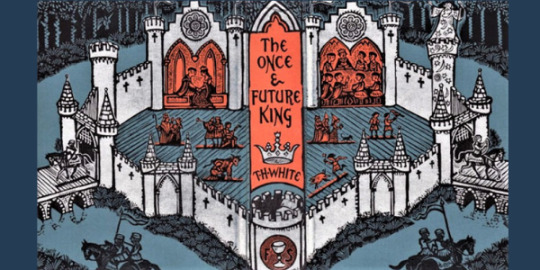
We also have to note that modern rewrites love to tell what happened during the life of characters in the form of prequels – in this case, the youth of Merlin, which is rarely detailed in the Middle-Ages outside of his birth and his encounter with Vortigern. It was the case within Mary Stewart, the first author who was concerned with the wizard’s youth, and who sems to have deeply marked modern Arthurianists, since the same pattern can be found in other novels, including those of Stephen Lawhead. This concern with “what happened before” is not exclusively Arthurian, and can be seen within other contemporary sagas – Star Wars, Indiana Jones, Blueberry… It is a tradition as old as the various “Childhoods” texts of the Middle-Ages. [Mary Stewart wrote “The Crystal Cave”, “The Hollow Hills” and “The Last Enchantment”. As a proof of the intertextuality of Arthurian novels, “the last enchantment” is an expression reused and exploited by Bernard Cornwell in the last part of his trilogy, where a dying Merlin, entirely devoured by his own student Nimue, preserves a “last enchantment” to allow Arthur and a few others to escape the battle of Camlan]
Be it Taliesin or Merlin, the first way the question of the magic implants itself within the narrative device is about the relationship between the king and his wizard. The magical element is thus tied to the political power, weighed down by a reality which, if not historical, is at least coherent. This heirloom is directly tied to the medieval sources, even if it is not obvious at first. The idea of an Arthur raised as a boy by Merlin owes much more to T.H. White’s “The Once and Future King” than to the medieval texts, where only a slow and complex evolution allowed the association of those two characters now seen as undividable. [White’s work is a set of five novels, first published separately, then compiled as one work in the 50s, and to which the last novel, The Book of Merlin, was added in 1977. This work is a precursor of all the rewrites that happened from the 60s onward, especially the first book that tells of Arthur’s childhood and his education by Merlin. It was a best-seller, and the adaptation of this first novel into an animated movie by Disney (63’s The Sword in the Stone) amplified its impact]. Indeed, within Geoffroy of Monmouth, Merlin and Arthur follow each other in the text… but never meet. It was within later rewrites, Wave, Lawamon, and in the French “Lancelot-Graal”, that the king and the enchanter will develop a more intimate relationship, culminating within Malory’s Morte Darthur. [In Geoffroy’s tale, the two characters at least never meet within the context of the tale. A doubt is allowed since in most of the manuscripts, Merlin makes a brief apparition at the very end of the “Historia”, where an “angelic voice” talks to Cadwallader, telling him that “God wishes that the Britons stop ruling within Britain until the moment that Merlin prophesized to Arthur” ; this sentence implies that Merlin might have been the king’s prophet, a role that will become more and more obvious in later rewrites]
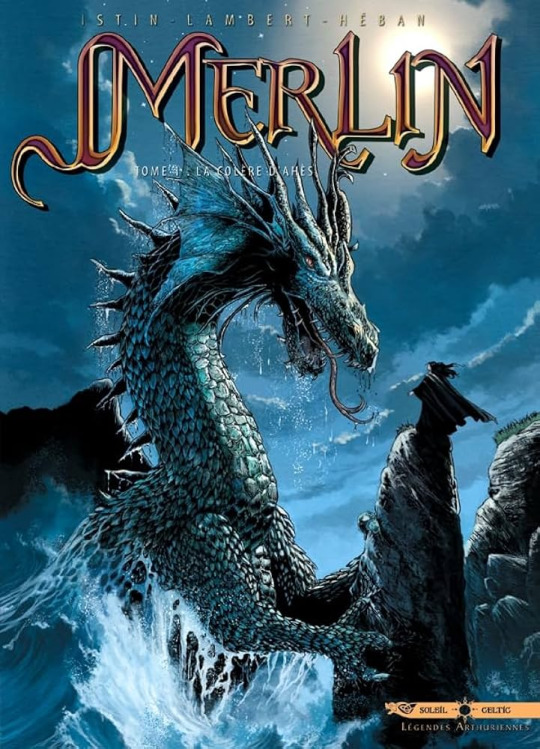
This is due to the two characters, Merlin and Arthur, originally belonging to two distinct traditions. Once they became connected thanks to Geoffroy’s Historia Regum Britaniae, the two characters got closer and closer, and gained many interactions, just as Merlin’s interventions became more and more fantastical. This is very clear when we look at an episode shared by all the medieval Merlinian tales: the moving of the stones of Ireland to create Stonehenge. Within Geoffroy’s, it is a mechanical process. Within Wace, an unexplained way. Finally, within Lawamon, it becomes a powerful spell that makes the stone “as light as feathers”. Modern authors follow this tradition and often reuse this episode, or a similar one, in what we can call “the motif of the dancing stones”. In the same way, within Lawhead’s novel, a child Merlin proves his powers to an assembly of druids by making the stones of a cromlech levitate. Stonehenge plays an important role for Cornwell: it becomes the place of a ghost-filled ceremony during which Merlin gives Excalibur to Arthur. Even among comic books, Merlin makes stones dance before amazed mortals. [It is within the first volume of the BD series “Merlin” by Jean-Luc Istin and Eric Lambert, “La colère d’Ahès” (The Wrath of Ahès). The dancing stones of Istin and Lambert are quite similar to the ones described by Lawhead, and the scenarist confessed having read the “Pendragon Cycle”. We find in this “Merlin” the same habt of syncretizing religions as within Lawhead’s works (father Blaise is a former druid, and offers Merlin as a symbol of the union of religions).]
We find back here what we said before: the historicized Arthurian literature of the 60s-80s greatly deprived the medieval text of their fantasy, and since the 80s-90s we have a slow re-appropriation of the medieval magic within novels that still, however, wish to be historical. In other terms – the stones are dancing again, but they are always dancing in a mentioned 6th century.
Before Lawamon, Merlin only acted during the lifetime of Aurelius and Uther, before disappearing for no reason after Arthur’s birth. However, the encounter between those two historical characters was too tempting to be avoided, and we can see a true shift between Geoffroy and Malory (for example), which today leads to the many tales in which Merlin acts as the teacher, tutor, or even adoptive father of Arthur. This filiation is helped by two elements. On one side, that is an elliptic moment covering Arthur’s childhood in medieval texts, and we go from him as a baby to him as a young fifteen-year old king. [We find within Lawamon the beginning of an explication: child-Arthur was raised by elves at Avalon. This idea was reused by Parke Godwin within the novel “Firelord”.] On the other hand, we can see that all of his next of kin die around the same time. In front of this absence of parents, it is very tempting to remove Ector (the father of Kay and the tutor of the royal child in the tradition) and put in his place a more familiar and impressive character, Merlin the wizard.
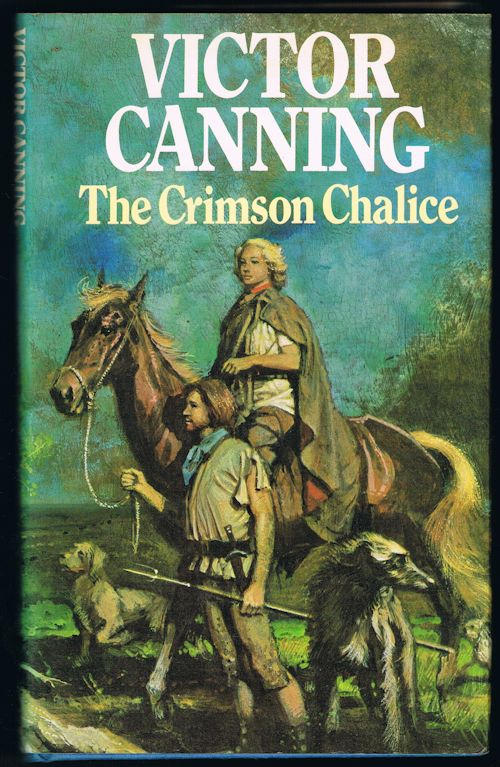
We talked before of the habit of “prequels”: the cyclical temptation of modern novels, which in a way mimics the Arthurian medieval tradition of a condensed and fractioned writing of the whole Arthurian legend (usually in three volumes), favorizes the writing of the origins, of the “before Arthur”. The introduction of Merlin, but also of Taliesin, proves this attraction for what Anne Besson calls an “Arthurian prehistory”. For Stephen Lawhead, the link between the various generations (Taliesin, father of Merlin, Merlin spiritual father of Arthur) insists upon the greatness and the predestination of the king of the Britons, the bearer of Light. Even when the Arthurian tale is limited to a single novel, it is not unusual to see it begin with the generation before Arthur: it was the case with Victor Canning’s “The Crimson Chalice”, where a third of the novel follows the events that led to Arthur’s birth (even though here Arthur’s parents are named Tia and Baradoc, and bear no resemblance to Igraine or Uther).
To all the reasons described above, we must add the fictional temptation of having characters coexisting to allow a powerful confrontation. But this temptation also bears a prevalent trait of the modern Arthurian fiction, and of its dialogue with the sources. Indeed, it is not uncommon to see a rearrangement, to various degrees, of the links that traditionally unite the characters. As such, in most sources Ygerne is the wife of Gorlois and the mother of Arthur, but she can be his half-sister and the mother of Medraud within Rosemary Sutcliff’s “Sword at Sunset”. The same Ygerne becomes Gorlois’ daughter, not his wife, in Stephen Lawhead’s work, as the author plays with the writing of the myth, has his Merlin-narrator laugh about the mad rumors that circulated about the siege of Tintagel “I have even heard it said that Ygerna was Gorlas’ wife – Imagine that!”). The marvelous does not escape this kind of more-or-less extreme shifts: the case of the female characters, of their relationship to magic, and of their role within history is especially revealing.
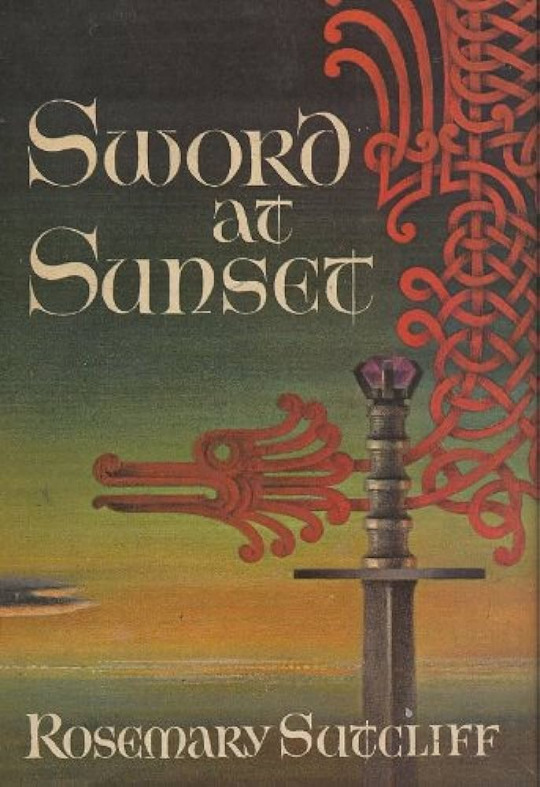
#arthuriana#fantasy#arthurian novel#fantasy novel#arthurian literature#translation#merlin#king arthur#taliesin#magic#arthurian rewrites#merlin the enchanter
14 notes
·
View notes
Text
10 Most Read Authors
Thanks for tagging me @godzilla-reads
"what are your ten most most read authors? and how many books have you read by them? also tag someone who you would like to do this!
instructions: scroll to the bottom of your goodreads shelves and most read authors is listed underneath."
I don't use goodreads but here's what ibknow from my personal collection
1. Seanan McGuire (21 books) Seanan McGuire is an amazing writer and one of the hardest things to do is put down one of her books once you start, it's always a captivating adventure to read one of her books
2. Kay Hooper (16 books) I'm not done with her Bishop/Special Crimes Unit books but oh my gosh, she writes good. If i had to give a short and sweet summary of what she writes, it would come off as a trashy genre. But she writes possibly my favorite romances I have ever read. Once a Thief and Always a Thief are my favorite romace books of all time, and the reason I read them was because of a ML fanfic called Once a thief Always a Thief by, I believe, Saijispellhart, I think that's right, if you read that fic and liked it then you will love Kay Hooper
3. CJ Cherryh (12) this is possibly my favorite writer of science fiction full stop and i can't even get into it here because i would talk for ages, the message here is to read CJ Cherryh's books, for the love of Goddess read them
4. Jimmy Gownley (8 books) Amelia Rules is my favorite comic of all time with a close secomd being the planet Sakaar arc in the hulk comics
5. Diana Rowland (7 books) people just love her white trash zombie books, and foe good reason, but personally i loved her Mark/Blood of the Demon books a whole lot more
6. Victoria Laurie (7 books) i loved the first book in her ghost hunter mystery books, then 2 and 3 were a slog, and then the rest were good again, not sure what happened to the second and third book
7. Marrion Zimmer Bradley (7 books) ew ew ew ew ew ew ew ew ew ew what the fuck is up with her ew ew ew ew ew ew this is what passed for feminist writing back then?! I've read incel rants with more respect for women than some of the stuff she writes!
Anyway she's an ok science fiction writer with a way of writing really engaging stories with a strong narrative voice, don't read her books, they really are not kind to women
8. Michelle Tea (5 books) go read mermaid in chelsea creek, go do it, right now, this is a demand, read mermaid in chelsea creek, cry about it and then come back to me and tell me what you thought about it, do it now
My favorite book from her is Valencia btw, an excellent memoir
9. Kim Harrison (4 books) don't ask me anything about her books, i could not tell you, i know what happened because i read them but the memories are jumbled up with details from the October Day novels
10. Stephen king (4 books) Stephen King is, ehhhh, i read him more for the status that he was a prolific writer and had a lot of popular books, the first one i read, which is still my favorite by the way, is The Girl Who Loved Tom Gordon
Honorable mentions that i just recommend you go read because i love their books
Eileen Myles shouldn't need and introduction and if she does then you are living a worse life for it
Rob Reger who wrote the Emily The Strange books
Clive Barker who i have read quite a bit but excluded him for the same of smaller names (but you included stephen king) shut up
Wendy Holden, she didn't write many books but the ones she wrote were good
Dana Fredsti, her plague books are like brownies
Jeanien Frost, imagine if Kim Harrison was more memorable
Now i'll tag @scham-wcan @vivaciousarcanist @zerm2v0hg @far-side-skies @grimm-the-6th @overlordneon @transgressivepistoleer @mx-kit
11 notes
·
View notes
Text
Ever After High OC Masterlist

Name: Cressida Peters (Daughter of The Witch)
Fic: Last Midnight
Love Interest: Daring Charming
FC: Mia Goth

Name: Diana Huntsman (Daughter of The Huntsman)
Fic: Bring Me Your Heart
Love Interest: Raven Queen
FC: Fivel Stewart

Name: Dorothea Hook (Daughter of Captain Hook)
Fic: Think Of A Wonderful Thought
Love Interest: Apple White
FC: Olivia Cooke

Name: Fatima Jalis (Daughter of Aladdin)
Fic: Proud Of Your Girl
Love Interest: Cerise Hood
FC: Jessie Mei Li
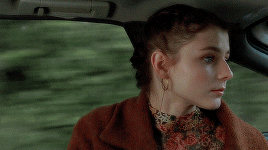
Name: Lucinda Silberhaus (Daughter of Clara)
Fic: Waltz of the Snowflakes
Love Interest: Hopper Croakington II
FC: Thomasin McKenzie

Name: Marina Nielsen (Daughter of The Sea Witch)
Fic: Fathoms Below
Love Interest: Faybell Thorn
FC: Diana Silvers

Name: Melora Zimmer (Daughter of The Princess)
Fic: A True Princess
Love Interest: Dexter Charming & Raven Queen
FC: Hannah Dodd

Name: Nicholas Darling (Son of Wendy Darling)
Fic: Think Of A Wonderful Thought
Love Interest: Hunter Huntsman or Alistar Wonderland
FC: Matt Cornett
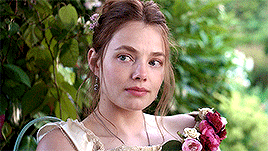
Name: Orsel Pendragon (Daughter of King Arthur)
Fic: Hollow All Delight
Love Interest: Chase Redford or Faybelle Thorn
FC: Kristine Froseth

Name: Petra Scrooge (Daughter of Ebenezer Scrooge)
Fic: Bah Humbug
Love Interest: Raven Queen
FC: Mikey Madison

Name: Sadhana Diyab (Daughter of Ali Baba)
Fic: Den of Thieves
Love Interest: Sparrow Hood
FC: May Calamway

Name: Sandra Voigt (Daughter of Gerda and Kai)
Fic: Eternal Winter
Love Interest: Maybe Lizzie Hearts
FC: Olivia Scott Welch

Name: Sylvia Pan (Daughter of Peter Pan)
Fic: Think Of A Wonderful Thought
Love Interest: Poppy O'Hair
FC: Sofia Wylie

Name: Teddy Pendragon (Son of King Arthur)
Fic: Hollow All Delight
Love Interest: Dexter Charming
FC: Daniel Sharman

Name: Zelda Dagmar (Destined Maid Marian)
Fic: Love Goes On
Love Interest: Darling Charming
FC: Talia Ryder
7 notes
·
View notes
Text
50% auf große Schuhe: schuhplus startet Sommer-SALE

MEGA-Aktion des Jahres: 50 Prozent Rabatt auf Schuhe in Übergrößen bei schuhplus Über 2000 Modelle Schuhe in Übergrößen drastisch um 50 Prozent reduziert bei schuhplus Dörverden, 09.07.2024 - Es ist offiziell: Der Sommer ist da, und mit ihm kommt der heißeste Sommer-SALE des Jahres bei schuhplus: Europas größtes Versandhaus für Schuhe in Übergrößen bietet nun 50% Rabatt auf über 2000 Modelle im großen schuhplus Sommer-SALE (https://www.schuhplus.com/sommersale). Von Sneakern über Stiefeletten, Pumps, Halbschuhe bis hin zu Ballerinas - die aktuelle SALE-Kollektion beim SchuhXL-Spezialisten lässt keine Wünsche offen. Egal ob sportliche, elegante oder lässige große Schuhe: Bei schuhplus finden Kundinnen und Kunden das perfekte Paar, um den urbanen Sommerlook zur perfekten Jahreszeit zu komplettieren. Große Schuhe: Ein Sommer voller Stil- und Sparmöglichkeiten Seit über 20 Jahren hat es sich schuhplus zur Aufgabe gemacht, der Kundschaft stets die besten Angebote zu bieten - und der aktuelle Sommer-SALE stellt das eindrucksvoll unter Beweis. Mit einem Rabatt von 50% auf eine beeindruckende Auswahl an XL-Schuhen können Kundinnen und Kunden stilvoll durch den Sommer schreiten, ohne dabei das Budget zu sprengen. Die Aktion umfasst über 2000 Modelle von bekannten Marken, sodass jeder sicher sein kann, dass Qualität und Design im Vordergrund stehen. Ob große Damenschuhe (https://www.schuhplus.com/damenschuhe) oder große Herrenschuhe: Der Übergrößen-Schuhprofi sorgt mit dieser Aktion erneut für besten Komfort für Füße und Geldbeutel zugleich. Alles, was das grooooße Schuh-Herz begehrt Ob bequeme Sneaker für den Alltag, elegante Halbschuhen für das Büro oder schicke Ballerinas für den Abend: Der Versandhändler Nr.1 für XL-Schuhe, schuhplus aus Dörverden, hat für jeden Anlass das passende Modell. Die aktuelle 50%-Kollektion bietet eine Vielzahl an Stilen und Farben, die perfekt zu der Sommergarderobe passt. Mit der breiten Auswahl und den unschlagbaren Preisen ist jetzt der perfekte Zeitpunkt, um die hauseigene Schuhsammlung aufzufrischen. "Wir bei schuhplus wissen, dass Schuhe nicht nur ein Accessoire sind, sondern ein Ausdruck von Persönlichkeit. Deshalb möchten wir, dass unsere Kundschaft sich bei jedem Schritt wohlfühlt und gut aussieht. Unser Sommer-SALE ist daher nicht nur ein Angebot: Es ist eine Feier des Sommers, der Mode und vor allem der Individualität", sagt schuhplus-Chef Kay Zimmer. Shopping bei schuhplus: Einkaufen leicht gemacht Der erfahrene Versandhändler schuhplus macht das Einkaufen schlichtweg super easy, denn alle Special-Angebote sind auf der Sonderseitewww.schuhplus.com/sommersale perfekt zusammengefasst. Mit nur wenigen Klicks können Kundinnen und Kunden die neuen Lieblingsschuhe bestellen und sich auf eine schnelle Lieferung freuen. Der benutzerfreundlicher Online-Shop und das engagierte Kundenserviceteam stehen jederzeit zur Verfügung, um die Einkaufserfahrung so angenehm wie möglich zu gestalten. Der große schuhplus Sommer-SALE ist somit mehr als nur eine Gelegenheit, Geld zu sparen: Es ist DIE Chance, den eigenen Stil neu zu definieren und die Garderobe auf das nächste Level zu heben. "Mit über 2000 Modellen zur Auswahl finden Sie bei schuhplus garantiert etwas, das Ihren Geschmack trifft. Lassen Sie sich von der Vielfalt und den unschlagbaren Preisen inspirieren und gönnen Sie sich etwas Besonderes", so Zimmer weiter. schuhplus steht für Qualität in großen Schuhgrößen Mit den richtigen XL-Damenschuhen sowie Herrenschuhen in Übergrößen (https://www.schuhplus.com/herrenschuhe) wird jeder Sommerausflug zu einem besonderen Erlebnis. Ob ein Spaziergang am Strand, ein Barbecue mit Freunden oder einfach nur die Sonne im Lieblingscafe genießen: Der Große-Schuhe-Profi schuhplus hat die perfekten Schuhe für den Sommer 2024." Machen Sie diesen Sommer unvergesslich mit den stilvollen und komfortablen Modellen aus unserer aktuellen Sommeraktion. Unsere Schuhe sind nicht nur modisch, sondern auch langlebig und bequem. Jedes Paar wird sorgfältig ausgewählt, um sicherzustellen, dass es den hohen Standards entspricht. Durch den Sommer-SALE können Sie nun diese hochwertigen Schuhe zu einem Bruchteil des ursprünglichen Preises erwerben - eine Gelegenheit, die Sie nicht verpassen sollten", erklärt der schuhplus-Chef. "Dieser Sommer-SALE ist unsere Art, Danke zu sagen. Danke für Ihre Treue, Ihre Unterstützung und Ihre Liebe zu großartigen Schuhen. Wir freuen uns, Ihnen diese einmalige Gelegenheit bieten zu können, und hoffen, dass Sie genauso begeistert sind wie wir. Nutzen Sie die Chance und sichern Sie sich Ihre Favoriten, solange der Vorrat reicht". Die Bildrechte liegen bei dem Verfasser der Mitteilung.
#schuhplus#SALE#Rabatt#große Schuhe#Gutschein#SSV#Aktion#Sparen#Rabatte#Geld sparen#große Damenschuhe#große Herrenschuhe#XL-Schuhe#XL-Damenschuhe#XL-Herrenschuhe#Übergrößen Schuhe#Kay Zimmer#Georg Mahn
0 notes
Note
🎶✨when u get this, list 5 songs u like to listen to, publish. then, send this ask to 10 of your favourite followers (positivity is cool)🎶✨
alright, it's hard picking only five, but i'll try. i'm not ranking them tho bc i love 'em all <3
Jude York - All I See is Him Kay Starr - C'est Magnifique Bastille and Hans Zimmer - Pompeii MMXXIII Nicholas Britell - Andante Moderato ("Amen") Lesley Gore - You Don't Owe Me
2 notes
·
View notes
Text
#nowplaying#2017#The Sound of my 2017#The Sound of my youtube#The Sound of my#Johann Sebastian Bach#Ensemble Resonanz#MUCC#Imagine Dragons#Michael Patrick Kelly#Hans Zimmer#Rhonda#PRAG#Mark Forster#Kai & Funky & Gymmick#Moses Pelham#Stefanie Kloß
0 notes
Text
So...
I saw Kung Fu Panda 4 today, and overall, it was a pretty decent film, I definitely found it better than the third film, which is something I worried about when DreamWorks announced there was gonna be a fourth film. (Supposedly there's gonna be six films altogether.) *Spoilers below the cut.*
Music: The soundtrack/score was pretty solid. Hanz Zimmer has always been a great music producer and each piece fit and set the tone of each scene. Also they kept all the leitmotifs from all the previous films, as well as one particular one from the third film. Overall I give the music a solid 10/10.
Characters: Po, Shifu, Mr. Ping, and Li Shan, (Po's biological father) were all there, but the Furious Five were nowhere in sight until the very end, which kinda surprised and disappointed me. I liked Zhen as Po's sidekick and her personality was mischievous as sneaky, as well as spunky. I found the chameleon to be a much more intimidating villain than General Kai from the third film, which again was a bit of fresh air, because something about Kai didn't really impress me as a villain. The chameleon is right up there with Lord Shen. The other bad guy side characters were pretty funny to watch, and they served their purpose, so nothing much to complain about there, although I feel like Po doesn't really develop much in this film like he did in the other three. Overall I give characters a 8.5/10. May or may not change this score later.
Plot: once again, the whole Furious Five not being apart of the movie as much as the other three films kinda surprised and disappointed me. I could see the betrayal twist with Zhen coming a mile away, and I knew she either had to affiliate with the chameleon in one way or another. When the Chameleon stole all the past warriors powers for her own, I fully expected her to actually attack the city, but it didn't happen. The whole fight was pretty much contained inside the throne room area. At least Zhen betrayed the Chameleon back in exchange to be a good person and to be Po's friend for real. It's no surprise either that Po would choose her to be the next Dragon Warrior. Was also surprised to see Tai Lung and the rest of the bad guys essentially end any "bad blood" between them and Po and show respect. Li Shan and Mr. Ping provided comedic relief and nothing much more. Overall I give the plot a 7.5/10.
Animation: Nothing much to say here, the drawings and colors were pretty solid, I didn't notice any glitches or anything off to me, and frames moved smoothly. 10/10.
Final thoughts: Overall I think this movie was a bit better than the third film, at least villain wise. The Chameleon and Zhen helped play a role in making the film engaging. But not seeing the Furious Five disappointed me personally, which is why I'm giving the film altogether a 8/10.
Let me know what you all thought of the film!
8 notes
·
View notes
Text








🌈 Queer Books Coming Out in July 2024 🌈
🌈 Good morning, my bookish bats, and happy July! Pride Month may be over, but remember: Read Queer ALL Year. Here are a FEW of the stunning, diverse queer books you can add to your TBR before the year is over. Happy reading!
[ Release dates may have changed. ]
❤️ Earth to Alis - Lex Carlow 🧡 Cursed Boys and Broken Hearts - Adam Sass 💛 The Sky on Fire - Jenn Lyons 💚 The Meaning of Liberty - Sage Donnell 💙 Making It - Laura Kay 💜 The Black Bird of Chernobyl - Ann McMan ❤️ A Map of My Want - Faylita Hicks 🧡 The Devil You Know - Ali Vali 💛 The White Guy Dies First: 13 Scary Stories of Fear and Power - Various 💙 The Second Son - Adrienne Tooley 💜 Cursed Under London - Gabby Hutchinson Crouch 🌈 Forbidden Girl - Kristen Zimmer
❤️ Rise - Freya Finch 🧡 Undercurrent - Patricia Evans 💛 Online Rebellion - Blue Matt Jeff 💚 Wolf Gift - T.J. Nichols 💙 Cash Delgado Is Living the Dream - Tehlor Kay Mejia 💜 Miller: Origin - Starr Z. Davies ❤️ The Shadows Beyond - T.J. Rose 🧡 The Ones Who Come Back Hungry - Amelinda Bérubé 💛 Their Viscountess - Jess Michaels 💙 Fast Holiday - Kerry Lockhart 💜 The Great Cool Ranch Dorito in the Sky - Josh Galarza 🌈 The West Passage - Jared Pechaček
❤️ The Hades Calculus - Maria Ying 🧡 Misrecognition - Madison Newbound 💛 One Last Summer - Kristin Keppler 💚 Waypoint Seven - Xan van Rooyen 💙 Hiding Him - Adam Hattan 💜 Thousand Autumns - Meng Xi Shi, Me.Mimo ❤️ The Adventure Zone, Vol. 6: The Suffering Game - Various 🧡 Rowan & Aldred - Lucie Fleury 💛 Yoke of Stars - R.B. Lemberg 💙 Casting Vows - Ariella Talix 💜 Count Felford's Vessel - S. Rodman
❤️ The Actor and His Secret - Ben Alderson, Laura R. Samotin 🧡 How To Die Famous - Benjamin Dean 💛 So Witches We Became - Jill Baguchinsky 💚 The Amazing Alpha Tau Romeo and Juliet Project - Lisa Henry, Sarah Honey 💙 The Noble’s Merman - S.S. Genesee 💜 The Loudest Silence - Sydney Langford ❤️ Life is Strange - Brittney Morris 🧡 Bury Your Gays - Chuck Tingle 💛 I Will Never Leave You - Kara A. Kennedy 💙 The Blonde Dies First - Joelle Wellington 💜 Under the Lupine Moon - A. Knightley
❤️ Benji Zeb is a Ravenous Werewolf - Deke Moulton 🧡 Charlotte Illes Is Not a Teacher - Katie Siegel 💛 The Ghostkeeper - Johanna Taylor 💚 Trespass Against Us - Leon Kemp 💙 Exes & Foes - Amanda Woody 💜 The Very Long, Very Strange Life of Isaac Dahl - Bart Yates ❤️ Unbound - J.A. Vodvarka 🧡 StreamLine - Lauren Melissa Ellzey 💛 Time and Time Again - Chatham Greenfield 💙 No Road Home - John Fram 💜 Queen B - Juno Dawson 🌈 A Darker Mischief - Derek Milman
❤️ Beautiful & Terrible Things - S.M. Stevens 🧡 Benvolio & Mercutio Turn Back Time - Elle Beaumont, Lou Wilham 💛 About Last Night - Laura Henry 💚 You Had Me at Happy Hour - Timothy Janovsky 💙 Moonbane - Jamie Jennings 💜 Between Fate & Failure - Amber D. Lewis ❤️ Blessed by the Cupid Distribution System - Robin Jo Margaret 🧡 Between Dragons and Their Wrath - Devin Madson 💛 Twisted Magic - Barbara J. Webb 💙 Rare Birds - L.B. Hazelthorn 💜 At the End of the River Styx - Michelle Kulwicki 🌈 Origin Story - Jendi Reiter
❤️ Eras of Us - Shannon O'Connor 🧡 Corpses, Fools and Monsters: The History and Future of Transness in Cinema - Willow Maclay, Caden Gardner 💛 A Wolf in Stone - Jane Fletcher 💚 Toward Eternity - Anton Hur 💙 Portrait of a Shadow - Meriam Metoui 💜 Anyone's Ghost - August Thompson ❤️ Home Ice Advantage - Ari Baran 🧡 Unbelievable You - Chelsea M. Cameron 💛 Incorrect Eyes - Andromeda Ruins
#books#queer books#queer book recs#sapphic books#sapphic romance#gay romance#gay#bi books#bisexual romance#bisexuality#wlw romance#wlw fiction#romance books#romance novels#romance#ya books#young adult books#young adult romance#young adult fiction#young adult#romantic fantasy#romantic comedy#romcom#batty about books#battyaboutbooks#book releases#book release#book blog#queer fiction#queer
31 notes
·
View notes